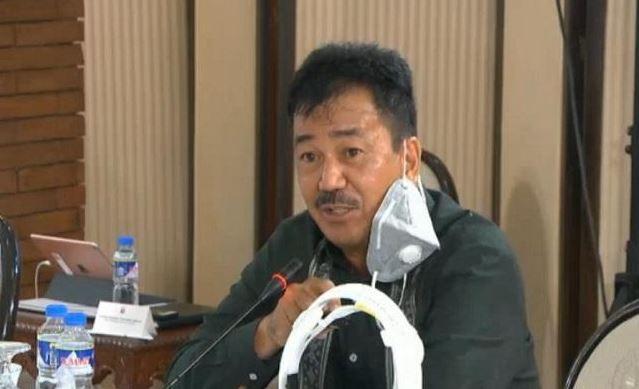P4.6B needed to expand medicine program in Philippines —CHED chief De Vera

The state universities and colleges (SUCs) will be needing an additional funding of close to P5 billion to expand their medicine program under the Doktor Para sa Bayan bill passed by the Senate, Commission on Higher Education (CHED) chief Prospero De Vera III said Monday.
During a Senate hearing on CHED's 50-billion proposed budget for 2021, De Vera presented the initial minimum computation to open additional public medical schools and expand the existing medicine course offerings.
"The projected budget for the expansion of the medical program under the Doktor Para sa Bayan bill will be about P4.6 billion. So, this is the bare-bones budget that has been estimated to increase the number of medical students to about 5,368 per year," he told senators.
This would include P1 billion for the initial operating cost of three SUCs with ongoing application to offer medicine—Cebu Normal University, Western Mindanao State University in Zamboanga City, University of Southeastern Philippines in Davao City; P1.17 billion for the 30% increase in carrying capacity of SUCs with existing medicine program; and P2.45 billion to equip potential SUCs to offer medicine program.
These estimates are not included in the National Expenditure Program for 2021, De Vera said.
Senate Minority Leader Franklin Drilon and Senator Pia Cayetano, nonetheless, expressed support for the additional funding requirement.
There are currently only eight SUCs across the country which offer the doctor of medicine program, according to De Vera:
- Mariano Marcos State University
- University of Northern Philippines
- Cagayan State University
- Bicol University
- West Visayas State University
- University of the Philippines School of Health Sciences
- University of the Philippines-Manila
- Mindanao State University-Marawi
There are no SUCs offering medicine in the Cordillera Administrative Region, Central Luzon, Mimaropa, Calabarzon, Central Visayas, Zamboanga Peninsula, Northern Mindanao, Davao Region, and Soccsksargen, he added.
Senator Joel Villanueva, citing a study, underscored that out of more than 26,000 students who took up the National Medical Admission Test in 2019, 10,000 came from regions that do not have SUCs offering medicine.
The Senate recently passed on third reading the Doktor Para sa Bayan bill which seeks to give medical scholarship to qualified Filipino students aspiring to become doctors.
It seeks to cover medical students' tuition and other school fees, required textbooks, uniform and living allowances, among others, and establish more public medical schools in the Philippines.
CHED would need additional funding for educational subsidies for medical students should this bill be passed into law, De Vera said.
Under the NEP for 2021, CHED earmarked P83.5 million to subsidize the tuition fees of medical students in SUCs.—AOL, GMA News



